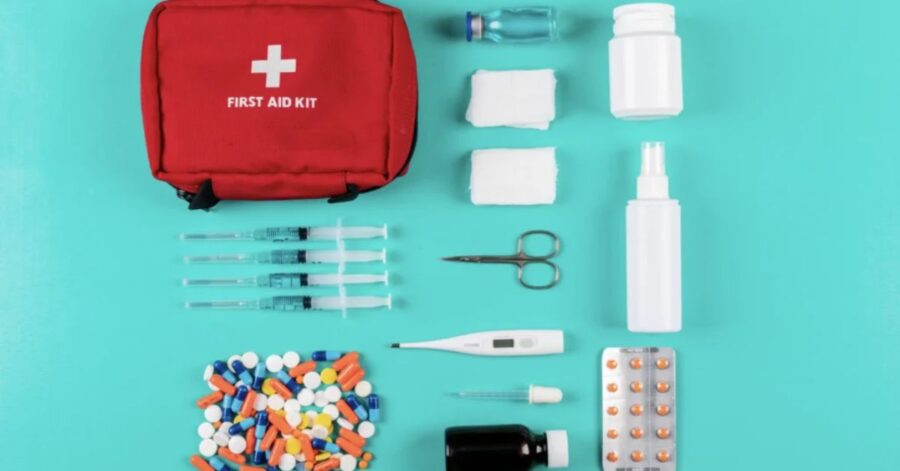10 Doctor-Recommended Items to Pack for Travel

Traveling can be an exciting adventure, but it also comes with its share of health risks. To ensure a safe and enjoyable trip, healthcare professionals advise packing a well-thought-out travel health kit. Here are ten essential items recommended by doctors to keep you prepared for common travel-related health issues:
Pain Relievers and Fever Reducers
Over-the-counter medications like acetaminophen (Tylenol), ibuprofen (Advil), or aspirin are essential for managing headaches, muscle aches, or fevers. These medications can provide relief from minor discomforts that may arise during your travels.
Antihistamines
Allergy medications such as diphenhydramine (Benadryl) can help alleviate symptoms of hay fever, insect bites, or other allergic reactions. They are particularly useful when traveling to areas with different allergens.
Anti-Diarrheal Medication
Medications like loperamide (Imodium) or bismuth subsalicylate (Pepto-Bismol) are crucial for managing traveler’s diarrhea, a common ailment among travelers. These can help control symptoms and prevent dehydration.
Antacids
When traveling, antacids are a helpful solution for managing heartburn, indigestion, or upset stomachs. Tums, Rolaids, Mylanta, Pepto-Bismol, Eno are well-known antacids and anti-inflammatory, and Alka-Seltzer is an effervescent antacid that works by neutralizing stomach acid, providing relief from heartburn and indigestion. It’s fast-acting and offers relief from multiple symptoms like bloating, upset stomach, and heartburn. The effervescent nature makes it easy to consume.
Motion Sickness Remedies
If you’re prone to motion sickness, packing anti-nausea medications such as dimenhydrinate (Dramamine) can be beneficial. These medications can help prevent nausea during long flights, car rides, or boat trips.
First Aid Supplies
A basic first aid kit should include adhesive bandages, antiseptic wipes, gauze pads, and medical tape. These items are essential for treating minor cuts, scrapes, or blisters that may occur during your travels.
Home
Sunscreen and Lip Balm with SPF
Protecting your skin from harmful UV rays is important, even when traveling to cooler destinations. Sunscreen with at least SPF 30 and lip balm with SPF can help prevent sunburn and chapped lips.
myDr.com.au
Insect Repellent
To avoid insect-borne diseases, especially in tropical regions, packing an insect repellent containing DEET or picaridin is advisable. This can protect you from mosquitoes and other biting insects.
Prescription Medications
If you take prescription medications regularly, ensure you have an adequate supply for the duration of your trip, plus extra in case of delays. Carry all medications in their original containers with clear labels.
Home
Thermometer
A digital thermometer is useful for monitoring body temperature in case of illness. It’s a handy tool to have when assessing symptoms like fever.
Hand Sanitizer and Antibacterial Wipes
Maintaining hand hygiene is crucial, especially when traveling. Carrying a small bottle of hand sanitizer with at least 60% alcohol and antibacterial wipes can help reduce the spread of germs.
Additional Tips:
Medical Alert Information: If you have a chronic condition, consider wearing a medical alert bracelet or carrying a card detailing your medical history and emergency contacts.
The Health Room by American Medical ID
Destination-Specific Vaccinations: Depending on your travel destination, certain vaccinations may be recommended. Consult with a healthcare provider before your trip to ensure you’re adequately protected.
Travel Insurance: Consider purchasing travel insurance that covers medical emergencies, trip cancellations, and lost baggage. This can provide peace of mind during your travels.
By packing these essential items and taking preventive measures, you can help ensure a healthy and enjoyable travel experience. Always consult with a healthcare professional before traveling, especially if you have underlying health conditions or are traveling to areas with specific health risks.
Related stories: https://airguide.info/category/air-travel-business/travel-health-security/health-care/
Sources: airguide.info, CDC.gov, Condé Nast Traveler, Doctor Anywhere, myDr.com.au, New York Post
